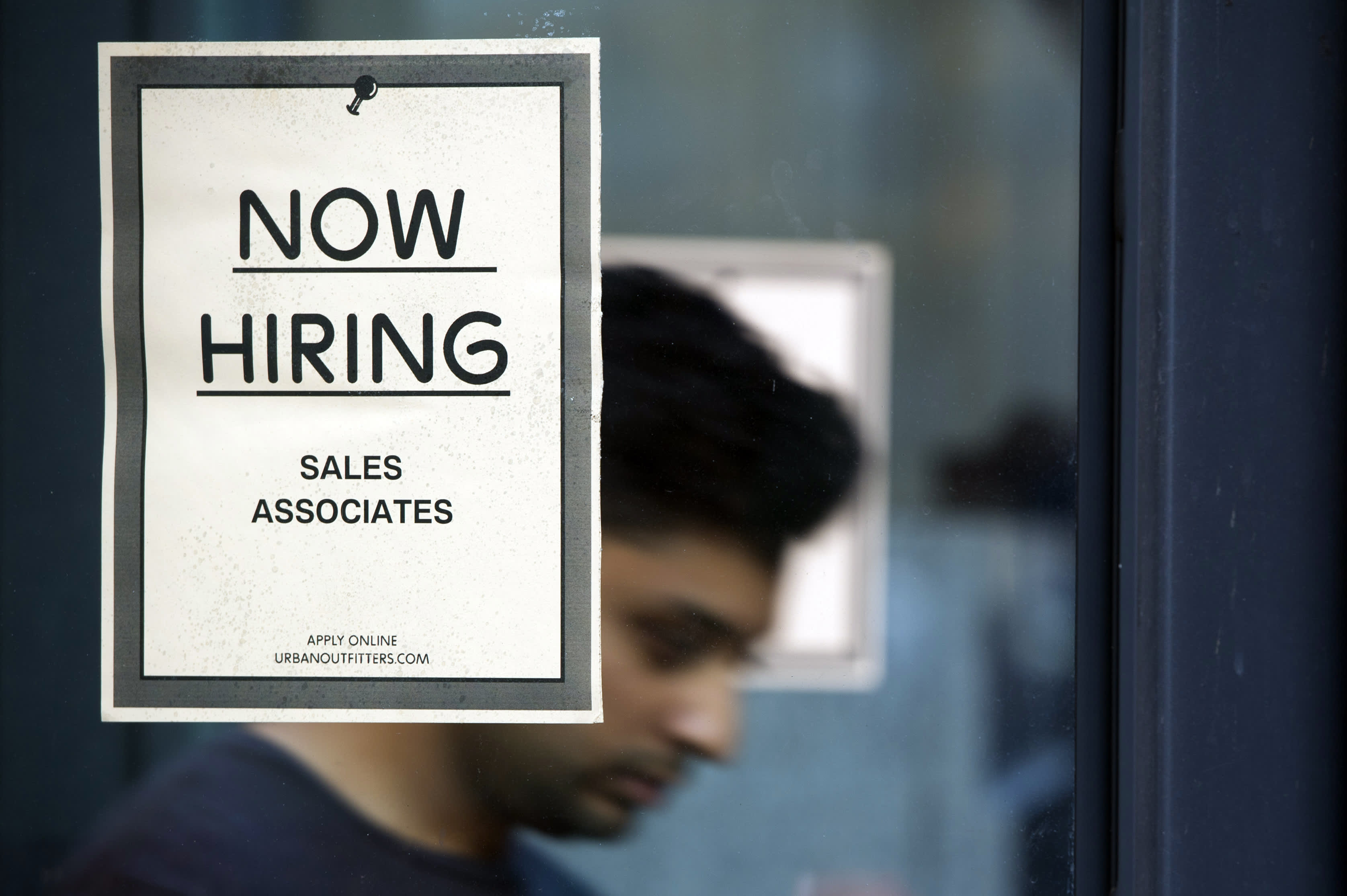Retailers detail staffing shortages as omicron rages, but investors seeing it as short-term hit

A “now hiring” sign is posted on an Urban Outfitters store in San Francisco.
David Paul Morris | Bloomberg | Getty Images
Retail executives presenting at the virtual ICR Conference this week paint a picture of how the Covid omicron variant is denting sales and leaving stores and distribution centers understaffed.
But so far investors seem to be shrugging off the bad news, seeing it as a short-term challenge. For many retailers, the silver lining appears to be the staying power of consumer demand.
Lululemon said sales in the November-to-January quarter will come in on the low end of its previous expectations due to shorter hours at some locations tied to labor constraints.
Similarly, Lands’ End said it has had a difficult time hiring, while Abercrombie & Fitch cut its fiscal fourth-quarter revenue estimates because it didn’t have enough merchandise in stock to meet consumer demand.
Separately, Urban Outfitters said shopper visits to its stores didn’t pick up in December like it had planned, but noted upticks in website purchases.
The underwhelming reports didn’t seem to affect their stocks, however. Abercrombie shares were up 8% midafternoon Tuesday, while American Eagle Outfitters rose about 3% and Urban Outfitters topped 2%. Lands’ End was up almost 4%.
But the latest surge of Covid cases in the United States is sure to keep rattling the retail industry in the coming weeks.
On Monday, roughly 1.5 million new cases of Covid-19 were reported, according to data compiled by Johns Hopkins University, pushing the seven-day average of daily new cases to 754,000. What’s more, hospitalizations are starting to climb, particularly among people who are not fully vaccinated.
While these retailers may be weeks away from releasing complete results for the holiday quarter, the revised forecasts and comments offer analysts and investors a preview of how they are looking to boost business despite the pandemic’s lingering impact.
Working extra hours
Lands’ End Chief Financial Officer Jim Gooch said Tuesday some employees have stepped up to work extra hours in recent weeks.
“We recognize that a big problem is going to be labor. … We’re hoping that that’s going to normalize going forward, but this year was a challenge,” he said during an ICR presentation. “And so the teams are doing what they can to try to get out in front of that as we go into this year.”
Abercrombie & Fitch added it has been able to pull workers from one of its brands to work at another brand’s stores in order to keep doors open when workers call out sick. The company also owns Hollister and Gilly Hicks.
“In a mall where we have several brands and we have a staffing issue because we have one store perhaps that gets caught up with Covid, we can borrow staff from the other stores and that has helped us out tremendously,” Abercrombie Chief Executive Fran Horowitz said.
As a result, Horowitz said, Abercrombie has not had to close any stores due to Covid outbreaks. It has, however, temporarily reduced hours at some locations, she said, an approach that companies from Macy’s to Gap to Nike have followed recently.
‘A bit of a deja vu’
“The first day of ICR 2022 was a bit of deja vu, with all of us hunkered down in front of our computers switching from meeting to meeting with the click of a button,” said Dana Telsey, CEO and chief research officer at Telsey Advisory Group.
“Unfortunately, the omicron variant of Covid-19 seems to be having the negative impact we have all feared on January sales and staffing,” she said in a note to clients.
Urban Outfitters reported Tuesday that its sales for the two-month period ended Dec. 31 rose 14.6% from 2019 levels. Digital sales climbed double digits, while in-store sales fell a low-double-digit percentage on a two-year basis, the company said.
“We do believe that omicron is affecting our store sales. … It’s hard to know how much,” said Urban Outfitters Chief Financial Officer Melanie Marein-Efron. “Once your stores are limiting their hours of operation of being open, clearly you’re limiting consumers’ ability to get into your store.”
American Eagle, which also owns the Aerie lingerie brand, said it’s projecting fourth-quarter sales to be up a mid-to-high teens percentage versus last year. That’s below the 21.5% increase that analysts were forecasting, according to Refinitiv data.
American Eagle did, however, raise its expectations for 2023 revenue to $5.8 billion, from $5.5 billion, signaling a belief that the negative Covid impact will only be temporary.
“We think it will be short term, if there is any impact, and more isolated in January … maybe into February,” said American Eagle CFO Mike Mathias, when asked about omicron. “We are sharing resources, as needed, between spikes in certain stores.”




